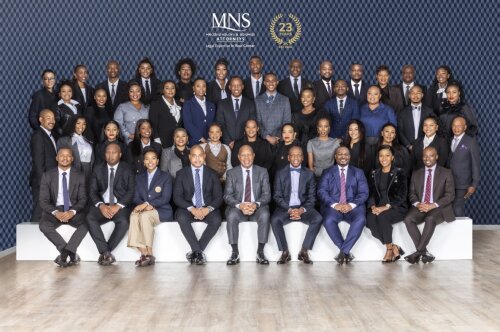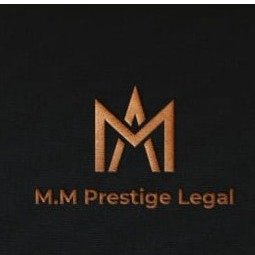Best Art & Cultural Property Law Lawyers in South Africa
Share your needs with us, get contacted by law firms.
Free. Takes 2 min.
Or refine your search by selecting a city:
List of the best lawyers in South Africa
About Art & Cultural Property Law in South Africa
Art & Cultural Property Law in South Africa encompasses the legal framework governing the protection, ownership, and transfer of art and cultural heritage. This field of law addresses issues related to the preservation of the nation’s cultural heritage, including tangible assets like artwork, historical artifacts, and intangible cultural expressions. The legal landscape in South Africa has been shaped by both national legislation and international conventions, aiming to protect cultural heritage from theft, illicit trade, and destruction.
Why You May Need a Lawyer
There are several scenarios where legal advice or representation in Art & Cultural Property Law might be necessary:
- Acquiring or Selling Art: Legal guidance can help ensure compliance with laws on provenance and authenticity.
- Inheritance and Estate Planning: When art and cultural property are involved, legal advice is crucial for proper valuation and distribution.
- Disputes Over Ownership: Legal intervention may be needed to resolve conflicts over the ownership of art pieces or cultural property.
- Repatriation Claims: Institutions or individuals may need legal support when dealing with claims for the return of cultural heritage items.
- Export and Import Regulations: Legal advice ensures compliance with national and international laws related to the movement of cultural properties.
Local Laws Overview
Key elements of South African laws relevant to Art & Cultural Property Law include:
- The National Heritage Resources Act, 1999: Provides for the protection and management of South Africa’s national heritage resources.
- The South African Constitution: Ensures the protection of cultural rights and the promotion of heritage preservation.
- Intellectual Property Laws: Covers the rights related to the creation and use of artistic works.
- Customs and Excise Act: Regulates the import and export of cultural goods, ensuring compliance with international treaties such as the UNESCO Convention on the Means of Prohibiting and Preventing the Illicit Import, Export and Transfer of Ownership of Cultural Property.
Frequently Asked Questions
What is considered cultural property in South Africa?
Cultural property includes items of historical, artistic, or archaeological significance, such as artworks, manuscripts, monuments, and archaeological sites.
How is cultural property protected in South Africa?
Cultural property is protected under the National Heritage Resources Act, which sets out measures for the conservation and maintenance of South Africa's heritage resources.
What should I do if I believe a work of art I own is a forgery?
Seek legal advice to explore options for authentication, potential restitution, or legal action against the seller.
Are there restrictions on exporting art from South Africa?
Yes, certain regulations must be respected to ensure compliance with national and international laws, particularly concerning heritage items.
What are my rights if I discover cultural artifacts on my property?
Report the discovery to the relevant authorities as directed by the National Heritage Resources Act, which outlines procedures for the preservation of such items.
How can artists protect their works from misuse?
Artists can protect their rights through copyright law, which safeguards the intellectual property of their creations.
What legal support is available for repatriating cultural properties?
Legal professionals specializing in this field can provide assistance to navigate both national legal systems and international conventions regarding repatriation claims.
Can indigenous cultural expressions be protected legally?
Yes, through legislation that supports the protection of Indigenous knowledge systems and cultural expressions, honoring communal rights and heritage.
What is the role of museums in cultural property law?
Museums act as custodians for cultural properties and are bound by laws to ensure the ethical acquisition and display of these items.
Do I need a permit for restoring artworks of national significance?
Yes, certain restoration works may require permits to ensure that the methods used comply with conservation standards.
Additional Resources
- South African Heritage Resources Agency (SAHRA): The body responsible for the protection of South Africa’s cultural heritage.
- Department of Arts and Culture: Oversees policies and programs related to arts and heritage.
- ICOM - South Africa: A national committee of the International Council of Museums, providing guidance on museum practices.
- Legal texts and journals on Intellectual Property Rights and Cultural Property Law in South Africa.
Next Steps
If you need legal assistance in Art & Cultural Property Law, it’s advisable to:
- Research and identify qualified lawyers: Seek out legal professionals who specialize in Art & Cultural Property Law.
- Consult professional organizations: Contact professional bodies such as the Law Society of South Africa for recommendations.
- Gather documentation: Prepare all documents related to your case, such as ownership records, provenance details, and any correspondence regarding the issue.
- Schedule a consultation: Meet with a legal professional to discuss your specific needs and explore the available legal remedies.
Lawzana helps you find the best lawyers and law firms in South Africa through a curated and pre-screened list of qualified legal professionals. Our platform offers rankings and detailed profiles of attorneys and law firms, allowing you to compare based on practice areas, including Art & Cultural Property Law, experience, and client feedback.
Each profile includes a description of the firm's areas of practice, client reviews, team members and partners, year of establishment, spoken languages, office locations, contact information, social media presence, and any published articles or resources. Most firms on our platform speak English and are experienced in both local and international legal matters.
Get a quote from top-rated law firms in South Africa — quickly, securely, and without unnecessary hassle.
Disclaimer:
The information provided on this page is for general informational purposes only and does not constitute legal advice. While we strive to ensure the accuracy and relevance of the content, legal information may change over time, and interpretations of the law can vary. You should always consult with a qualified legal professional for advice specific to your situation.
We disclaim all liability for actions taken or not taken based on the content of this page. If you believe any information is incorrect or outdated, please contact us, and we will review and update it where appropriate.
Browse art & cultural property law law firms by city in South Africa
Refine your search by selecting a city.
















